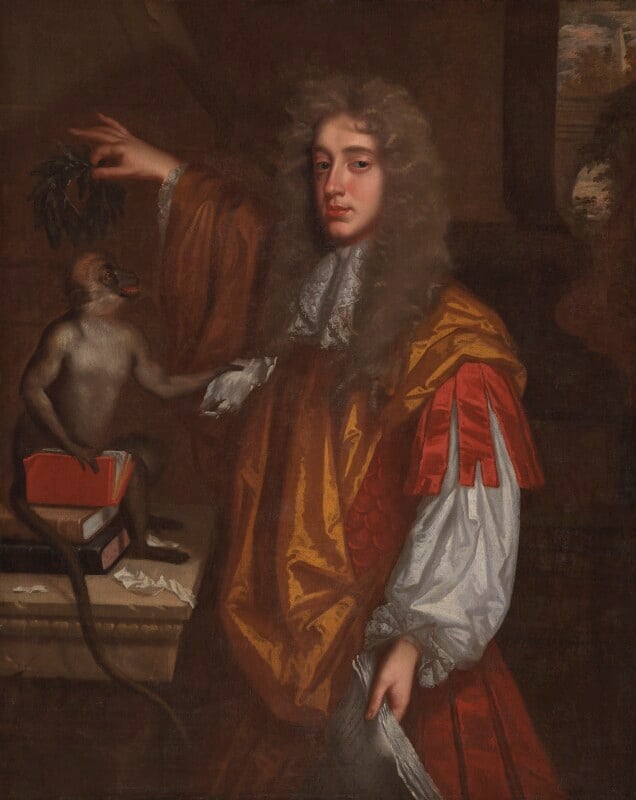Absent From Thee - John Wilmot

Dear! from thine arms then let me fly,
That my fantastic mind may prove
The torments it deserves to try
That tears my fixed heart from my love.
When, wearied with a world of woe,
To thy safe bosom I retire
where love and peace and truth does flow,
May I contented there expire,
Lest, once more wandering from that heaven,
I fall on some base heart unblest,
Faithless to thee, false, unforgiven,
And lose my everlasting rest."
The torments it deserves to try
That tears my fixed heart from my love.
When, wearied with a world of woe,
To thy safe bosom I retire
where love and peace and truth does flow,
May I contented there expire,
Lest, once more wandering from that heaven,
I fall on some base heart unblest,
Faithless to thee, false, unforgiven,
And lose my everlasting rest."
Meaning -
The basic meaning of this poem would be hat the speaker - John Wilmot - is struggling to remain faithful to his lover. They seem to be separated throughout the poem and perhaps insinuates that they are separate a lot of the time. During this distance he tells of his disloyalty as he sleeps with prostitutes and has affairs. Despite this, he does appear to express self-hate once these flings have taken place and even says that he will return to his tue and constant love. Of course, Wilmot's reputation was an undeniably telling one. He was known to have many affairs and be something of a womaniser, therefore leading us to believe that his regret in this poem is somewhat bogus.
Poetry - A similar sense of parting and separation is presented in 'Ae Fond Kiss' however that is more explicitly honest and romantic. Additionally, 'The Scrutiny' by Lovelace follows the same plot line of a man being unfaithful yet proclaiming that he will come back to his lover as he knows her to be the safe and secure option.
Language, Form and Structure -
- Religious language is used throughout and is often contrasted with the romantic, physical imagery which was not unusual for the time, however Wilmot does this rather explicit. Wilmot also seems to use this biblical imagery to make their love seem sacred as though he wouldn't want to lose her in the same way he wouldn't want to lose God.
- Romantic language is, of course, used frequently too. The more sentimental and romantic language suggests true and honest love rather than just purely physical.
- Clichés are often used in this poem arguably adding to the idea that his sorrow and true love is somewhat staged.
- Wilmot uses a typically romantic format as he writes it in a 'Song' form and uses fairly common ABAB rhyme scheme, all of these aspects can perhaps be said to show that he doesn't truly mean what he is trying to convey as all the techniques used are quite stereotypical.
Context -
- John Wilmot was well known to live an extravagant life during the reign of Charles II, a King who he knew very well and was close too. Sleeping with women was basically his hobby and overall he was just a generally outrageous character. 'Absent from Thee' does not showcase his bawdy behaviour as much as some of his other poems, however as already discussed, it is implicit.
Links to other texts -
Gatsby - The main link which can be drawn between 'Absent From Thee' and Gatsby is the similarity between the speaker and Tom. In the same way that the speaker says he will come back to his true and constant love, Tom claims that he always comes back to Daisy despite his 'sprees'.Poetry - A similar sense of parting and separation is presented in 'Ae Fond Kiss' however that is more explicitly honest and romantic. Additionally, 'The Scrutiny' by Lovelace follows the same plot line of a man being unfaithful yet proclaiming that he will come back to his lover as he knows her to be the safe and secure option.


A very well structured and clear overview of the poem, I particularly thought your links to other texts will be useful!
ReplyDelete